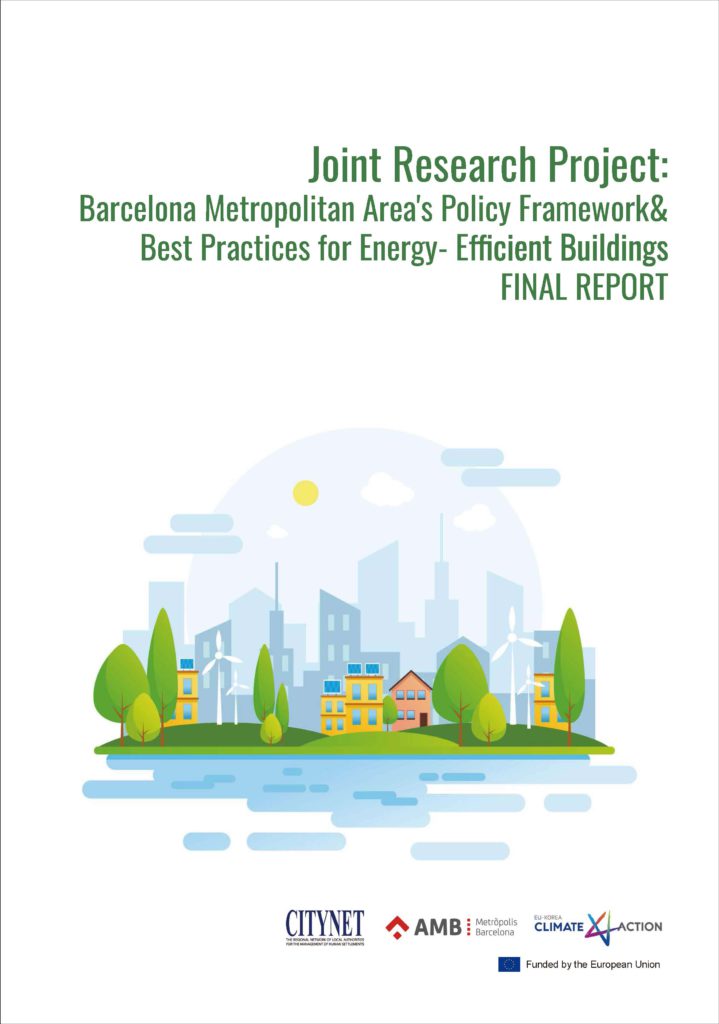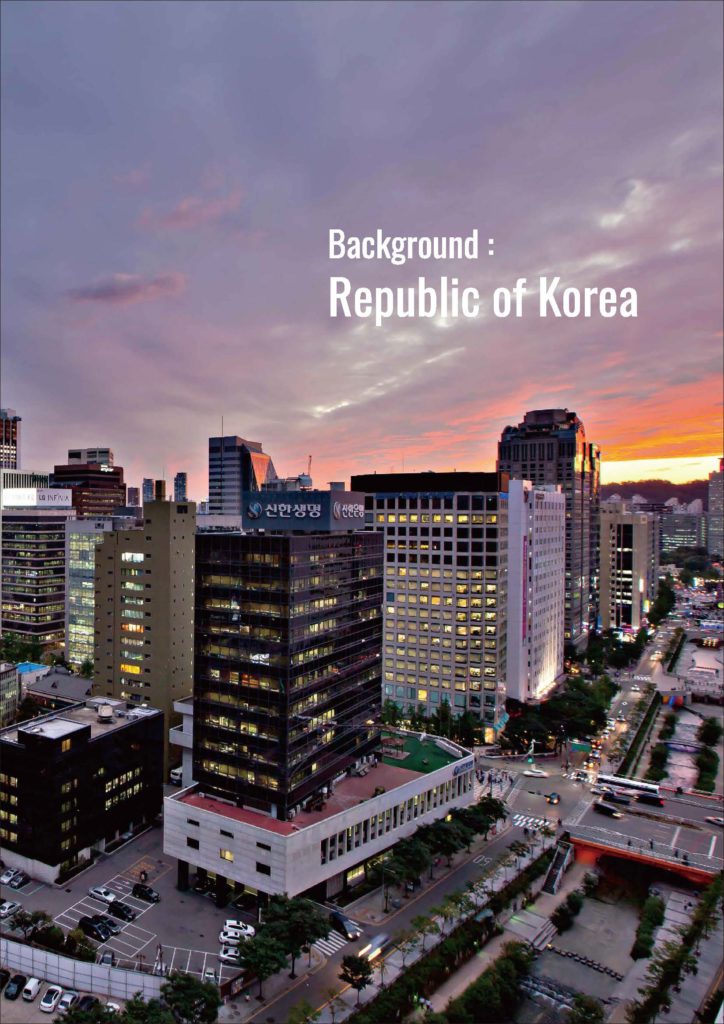 Launch of the Final Report of the CityNet, AMB, and EU-Korea Climate Action Study Visit
Launch of the Final Report of the CityNet, AMB, and EU-Korea Climate Action Study Visit
According to the World Resources Institute, although all buildings must be net zero carbon by 2050 to meet the Paris Agreement goals, less than 1% of buildings today are fulfilling this target. To meet this challenge, as part of the EU-Korea Climate Action project, which aims to aid Korea’s GHG emissions reduction and climate change adaptation efforts by providing an avenue to expand collaboration opportunities between Korean and European stakeholders, the CityNet Secretariat conducted a study visit in the Barcelona Metropolitan Area (AMB). CityNet is proud to finally launch the final report of this project under the title of “Barcelona Metropolitan Area’s Policy Framework & Best Practices for Energy-Efficient Buildings.”
This new publication in collaboration and learning from the Barcelona Metropolitan Area (AMB) will contribute to the GHG reduction through improvement of building energy efficiency practice and policy in Korean cities and metropolises, and other cities across Asia.
 The report consists of background research into current building energy efficiency practices of Korea and Spain from the national down to the metropolitan level, as well as documentation of various energy-efficient case studies in the metropolitan area of Barcelona via study visit. The background research puts emphasis on the definition and certification of zero-energy buildings (shortened to ZEB or nZEB) whose definition differs according to country. The report aims to not only show the differences in policy frameworks between AMB and Seoul but also provide tangible examples of energy-efficient case studies in the metropolitan area of Barcelona. The report consists of background research into current building energy efficiency practices of Korea and Spain from the national down to the metropolitan level, as well as documentation of various energy-efficient case studies in the metropolitan area of Barcelona via study visit. The background research puts emphasis on the definition and certification of zero-energy buildings (shortened to ZEB or nZEB) whose definition differs according to country. The report aims to not only show the differences in policy frameworks between AMB and Seoul but also provide tangible examples of energy-efficient case studies in the metropolitan area of Barcelona.The target cities that the research aims to address are Korean member cities of CityNet, which includes Seoul, Incheon, Busan, Suwon, and Jeju. There are many similarities between the AMB and target cities—such as Seoul—in terms of their area, high building energy consumption, issues of aging buildings, and the use of solar and geothermal energy. The publication can be accessed in both English and Korean. To access the full publication, please click on the links below: |

